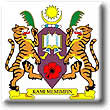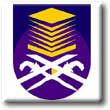Malaysian Public Universities
 Universiti Malaya (UM)
Universiti Malaya (UM)
Universiti Malaya (UM), established in 1905, stands as Malaysia's oldest and most prestigious university. Its rich history, originating from the merger of King Edward VII College of Medicine and Raffles College, sets it apart from other institutions. UM's commitment to academic excellence is evident in its consistent top rankings globally, including a 60th position in the QS World University Rankings 2025. The university's multidisciplinary approach, encompassing fields from medicine to humanities, and its state-of-the-art facilities, such as the Universiti Malaya Medical Centre, further distinguish it. UM's legacy of producing notable alumni who have significantly contributed to various sectors underscores its unique position among Malaysian government universities.
 Universiti Sains Malaysia
(University of Science, Malaysia) (USM)
Universiti Sains Malaysia
(University of Science, Malaysia) (USM)
A leading research university. The second university in Malaysia. Universiti Sains Malaysia (USM)
was first known as the University of Penang in 1969.
(research university)
Kelantan and Penang
 Universiti Putra Malaysia
(Putra University,Malaysia) (UPM)
Universiti Putra Malaysia
(Putra University,Malaysia) (UPM)
Renowned for agricultural studies, based in Selangor. Formally Universiti Pertanian Malaysia. Established in 4 October 1971 for the training of agricultural assistants in the government sector after the amalgamation of the College of Agriculture and the Faculty of Agriculture of Universiti Malaya in 1971. Renamed Universiti Putra Malaysia on 26 July 1997. (research university) Selangor
 Universiti Kebangsaan Malaysia
(National University of Malaysia) (UKM)
Universiti Kebangsaan Malaysia
(National University of Malaysia) (UKM)
National University of Malaysia, using Bahasa Malaysia as a medium. UKM - Universiti Kebangsaan Malaysia was established On 18 May 1970 as the first public university to use Bahasa Malaysia as medium of instruction in higher education. (research university) Selangor and WP Kuala Lumpur
 Universiti Teknologi Malaysia
(Technological University of Malaysia) (UTM)
Universiti Teknologi Malaysia
(Technological University of Malaysia) (UTM)
Leading technological university, established in 1975. Established on 1 April 1975. Its history dates back to 1925 as the Public Works Department Technical School. In 1931, it became the Education Department for training apprentices for the PWD, Malayan Railways and the Survey Department. In 1946, the school was upgraded to Technical College. In 1975, it was further upgraded to a university. Johor
 Universiti Teknologi MARA (UiTM)
Universiti Teknologi MARA (UiTM)
University Technology MARA UiTM Focus on producing Bumiputera professionals across industries. 26 August 1999, Institut Teknologi MARA was granted university status and renamed Universiti Teknologi MARA. This new university continues its initial intent to offer academic programmes as well as professional programmes in accountancy and information technology. UiTM pioneer in higher learning to producing a significant number of Bumiputera professionals skilled in a broad spectrum of industry.
 Universiti Utara Malaysia Universiti Utara Malaysia
(Northern University of Malaysia)(UUM)
Universiti Utara Malaysia Universiti Utara Malaysia
(Northern University of Malaysia)(UUM)
Specialized in management education, located in Kedah. 16 February 1984 Universiti Utara Malaysia was established as a catalyst for the growth of the Northern region of Malaysia. UUM focus on management education. Kedah
 UMS
UMS
Universiti Malaysia Sabah
(University of Malaysia Sabah)
Universiti Malaysia Sabah (UMS), established in 1994, is uniquely situated amidst Sabah's lush rainforests and coastal landscapes, offering a serene learning environment. Renowned for its commitment to sustainability, UMS pioneered Malaysia's first EcoCampus initiative, promoting environmental stewardship across its operations. The university excels in marine science, biodiversity, and indigenous studies, reflecting its dedication to regional relevance and global research excellence. UMS's distinctive setting and academic focus set it apart among Malaysia's public universities.
 Universiti Malaysia Sarawak
(University of Malaysia Sarawak)(UNIMAS)
Universiti Malaysia Sarawak
(University of Malaysia Sarawak)(UNIMAS)
24 December 1992, Universiti Malaysia Sarawak became the first university in East Malaysia. A catalyst for the development of East Malaysia and spearheading research and studies focus on sustainable management of natural resources. Sarawak
 Universiti Tun Hussein Onn Malaysia (UTHM)
Universiti Tun Hussein Onn Malaysia (UTHM)
Formally Kolej Universiti Teknologi Tun Hussein Onn (KUiTTHO) upgraded on 2007 as UTHM university. Universiti Tun Hussein Onn Malaysia is a public university in Batu Pahat, Johor, Malaysia. It was formerly known as Institut Teknologi Tun Hussein Onn and Kolej Universiti Teknologi Tun Hussein Onn. The history of Universiti Tun Hussein Onn Malaysia started off on September 16, 1993 as Pusat Latihan Staf Politeknik (PLSP). The core business of PLSP then was to train and produce polytechnics academic staff to become knowledgeable and skilful in various engineering fields. The training institute was jointly administered by Universiti Teknologi Malaysia and Ministry of Education.
 Universiti Pendidkan Sultan Idris (UPSI)
Universiti Pendidkan Sultan Idris (UPSI)
MPSI, Malaysia oldest teacher training college (established in 1922) was bestowed institute status in 1987 as Institute Perguruan Sultan Idris (IPSI). With its new status, IPSI started to introduce new courses including a twinning programme with Universiti Pertanian Malaysia (Universiti Putra Malaysia). IPSI was upgraded to university status On 24 February 1997 and renamed Universiti Pendidkan Sultan Idris (UPSI).
Perak
 Universiti Malaysia Pahang (UMP)
Universiti Malaysia Pahang (UMP)
Kolej Universiti Kejuruteraan & Teknologi Malaysia (KUKTEM) was established on 16 February 2000 as a competency - based technical university that specializes in engineering and technology with focuses on Chemical Engineering, Biotechnology Industries, Automotive Engineering, and Manufacturing Engineering. Pahang
 Universiti Sultan Zainal Abidin (UniSZA)
Universiti Sultan Zainal Abidin (UniSZA)
Previously : Universiti Darul Iman Malaysia (UDM) 1 January 2006, Universiti Darul Iman Malaysia was established with three campuses, each with a separate niche. The KUSZA campus focuses on teaching in Islamic studies. The campus in Kuala Terengganu offers Health Sciences while the campus in Besut specialized in Biotechnology and Agriculture programmes. Terengganu .
 Universiti Pertahanan Nasional Malaysia (UPNM)
Universiti Pertahanan Nasional Malaysia (UPNM)
Malaysian Armed Forces Academy (Akademi Tentera Malaysia - ATMA) established on 1 June 1995 to provide military training for cadet officers of the Armed Forces of Malaysia (ATM) was upgraded on 10 November 2006 to Universiti Pertahanan Nasional Malaysia (UPNM) offering Bachelor's degree on defence science and management. WP Kuala Lumpur .
 Universiti Sains Islam Malaysia (USIM)
Universiti Sains Islam Malaysia (USIM)
USIM stands out among Malaysia's government universities as the only institution that seamlessly integrates Islamic values with modern academic disciplines. Unlike others, USIM combines religious studies with science, technology, and professional fields - offering programs like Islamic Finance alongside Computer Science, all taught through an Islamic lens. It emphasizes "Naqli (revealed) and Aqli (rational) knowledge" synergy, producing ethically grounded graduates. As a *focused university* under the Ministry of Higher Education, USIM uniquely mandates Arabic and Islamic coursework for all students, regardless of their major. Its research focuses on contemporary Muslim challenges, making it a hub for Islamization of knowledge - a niche none of the other 19 universities prioritize as a core mission.
 Universiti Malaysia Terengganu (UMT)
Universiti Malaysia Terengganu (UMT)
Formerly known as :KUSTEM - July 2001, KUT - July 1999, UPMT - June 1996 Kolej Universiti Sains & Teknologi Malaysia (KUSTEM) upgraded to Universiti Malaysia Terengganu (UMT) on Feb 1st, 2007 Terengganu
 Universiti Teknikal Malaysia Melaka (UTeM)
Universiti Teknikal Malaysia Melaka (UTeM)
In 2007 Kolej Universiti Teknikal Kebangsaan Malaysia (KUTKM) was upgraded to UTeM University. Malacca .
 Universiti Malaysia Perlis (UniMAP)
Universiti Malaysia Perlis (UniMAP)
Previously known as : Kolej Universiti Kejuruteraan Utara Malaysia (KUKUM) Perlis .
 Universiti Malaysia Kelantan (UMK)
Universiti Malaysia Kelantan (UMK)
Universiti Malaysia Kelantan was established on 14 June 2006 at the onset of the Ninth Malaysia Plan which stresses on the development of human capital with first - class minds to explore, develop and expand knowledge in the areas of agrobusiness, entrepreneurship, heritage, creative technology and natural resource sciences. Kelantan.
 International Islamic University Malaysia (IIUM)
International Islamic University Malaysia (IIUM)
لجامعة الإسلامية
العالمية ماليزيا
IIUM - Universiti Islam Antarabangsa Malaysia founded on 10 May 1983 to revitalize the intellectual tradition of the ummah. The university's diploma, undergraduate and postgraduate degree programmes in several fields equipping students with the ability to integrate Islamic learning with intellectual creativity. This international university uses English and Arabic and has a 20% of international students. Pahang and Selangor